From left to right: Andreas Holz of the Alfred Toepfer Siftung, Lucia Ursu, Emmanuele Déon, Hayden Bridgeman and EUROPARC President Michael Hošek. Picture by PDF-Grafie for the EUROPARC Federation.
Thanks to the generous support of the Alferd Toepfer Stiftung, EUROPARC annually awards the Alfred Toepfer Scholarship to three young professionals working in Protected Areas.
2023 – winners:
Emmanuelle Déon
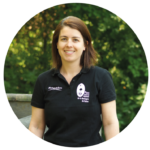
Emmanuelle
“My name is Emmanuelle Déon and I work as a Sustainable tourism project manager for Montagne de Reims Regional Park. My role is to engage with stakeholders in developing projects that make the Park more accessible to visitors, mainly through outdoor activities and soft mobilities. Tourism and leisure in Parks are a great way to raise people’s awareness of the beauty of nature, but are also challenging because we have to make sure that these activities don’t result in negative environmental impacts. My scholarship project is to study how Parks can get involved in developing social tourism, for a more inclusive and equitable access to sustainable tourism towards people in risk of poverty. I have a strong interest in the social pillar of sustainability because I believe it is our collective responsibility, as a society, to care for the most vulnerable populations. I aim at visiting several Protected Areas in Europe which have worked on this issue, in order to identify and disseminate best practices within European Parks.”
Hayden Bridgeman

Hayden
“My name is Hayden Bridgeman and I am North Area Ranger for the New Forest National Park Authority. My role is to help visitors and locals learn about what makes the National Park special, how they can enjoy the area, and offer advice about how to help protect it. I have a huge passion for making nature inclusive, and believe that everybody should be able to access green spaces. We, as a society, are increasingly aware of how crucial nature is to good mental health, yet those that need it most are often unable to access it. I am currently leading on a local initiative to enable refugees to access the UK’s National Parks and I want to continue to learn how I can remove more of the barriers this community faces when accessing nature. This scholarship allows me to learn from other professionals about some of the opportunities they have created in their Protected Areas for marginalised communities. I am so grateful for this opportunity and hope my findings will be useful to my European colleagues.”
Lucia Ursu
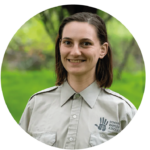
Lucia
“My name is Lucia Ursu. As an educator in Protected Areas, I have witnessed first-hand the vital role that parks play in promoting sustainable development and preserving our natural heritage. I strongly believe that Education for Sustainable Development (ESD) is crucial in our efforts to create a more sustainable future not just for Protected Areas but for nature in general. Through ESD we can change perspectives and shift attitudes towards more sustainable behaviours. Being an Alfred Toepfer Natural Heritage Scholarship winner brings me a unique opportunity to further develop my skills and knowledge in the field of ESD, enables me to expand my expertise and deepen my understanding of ESD and lets me connect with other professionals working towards a more sustainable future. I am committed to using the knowledge and skills I gain through the scholarship to make a positive impact in my community and beyond, and to contribute to the achievement of the Sustainable Development Goals.”
2022 – winners:
Margaux Pierrel
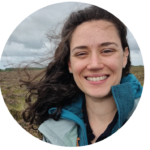
Margaux
Margaux works as a Conservation Ranger for the National Parks and Wildlife Service in Ireland. As part of her responsibilities, she monitors Natura 2000 sites, enforces the national and European wildlife and habitat legislation and engages with the community. Margaux has a strong interest in the concept of “shifting baseline syndrome” (SBS), also referred to as “environmental generational amnesia”. SBS is the situation in which over time, knowledge, or memory is lost about the state of the natural world, because people don’t perceive changes that are taking place. Her scholarship project is to study the effects SBS has on conservation measures in Protected Areas, particularly in terms of species loss, land use changes and rewilding. She aims at visiting places in the UK, the Netherlands, France, and Bulgaria that are aware of these challenges, in order to raise awareness and find solutions.
>> Read the article and download the full report.
Caitlin Cunningham

Caitlin
Caitlin works wok as a Marine Sustainability Adviser for NatureScot. Her job involves coordinating environmental advice for offshore wind and marine renewable proposals in Scotland, considering impacts to our seas and marine life. In her role, she is directly involved in helping to tackle the climate emergency through the development of renewable energy, whilst also balancing the conservation of biodiversity through minimising environmental impacts. During her study visit to the Netherlands, Caitlin will learn from marine and coastal renewable energy developments that impact protected sites, as well as the mitigation in place to protect biodiversity. She aims to broaden her understanding of different approaches to sustainable development, and record any lessons learnt that can be applied across the marine renewable energy sector. Caitlin states: “I’m delighted to receive one of the Alfred Toepfer Scholarships and look forward to sharing my findings with the wider environmental community”.
>> Read the article and download the full report.
Espen Quinto-Ashman
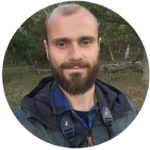
Espen
Espen works as the Bird Ringer in charge at Ottenby Bird Observatory. Here, he leads a team of up to 20 volunteers in the daily standardised ringing activities and other biological inventories on the reserve. During his study visits, Espen aims to visit three Protected Areas: Bialowieza National Park and Biebrza National Park in Poland and Maramures National Park in Romania. These areas encompass an array of habitats which are comparable to those that can be found at Ottenby, albeit on a much larger scale. The habitats I’m most interested in studying are: deciduous forest, marshes and meadow pastures. I will study how the management practices in the different parks are suited to the different ecosystems and how well they fulfil their job of protecting biodiversity as well as the key threats to nature in these places. I am particularly interested in how the presence of different species of large herbivores and carnivores, as well as the local hydrology, can affect the health of the habitats.
>> Read the article and download the full report.
2020 – winners:
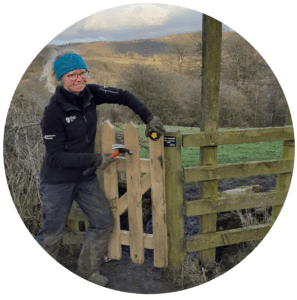
Anna Jennings works for the Peak District National Park Authority as an Engagement Ranger and she has written a Dissertation on the link between hillwalking and environmental awareness at the University of Edinburgh. Convinced of the positive role of Protected Areas, she focuses on mental health and wellbeing. Since past and current mental health projects in the Peak District were all short term and then stopped due to lack of funding, Anna wants to find a way to maximise the benefits for people and nature in the long term. That’s why she hope that her study visits will help her get insight into best practice examples from Europe and enable to reshape the Peak Districts engagement work around wellbeing.
>> Read the article and download the full report.
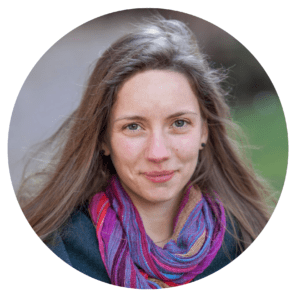
Réka Szilágyi works as IT professional at Milvus Group Bird and Nature Protection Association (Targu Mures, Romania) and provide assistance at the Milvus Group’s Wildlife Rehabilitation Center. Focussing on the protection and restoration of the highly vulnerable European vulture species, she wants to gain more knowledge about the work of Wildlife rehabilitation centres in different European Protected Areas and study their contribution to the EU Biodiversity Strategy 2030. Through her visits to wildlife rescue centres in Bulgaria and Spain, Réka aims to collect knowledge of local and international policies regarding rehabilitation projects and to compare them to Romanian legislation.
>> Read the article and download the full report.

Rosie Corner has been working as Local Plan Officer within the Yorkshire Dales National Park Authority. As such, she is responsible for assisting the Sustainable Development Manager with the delivery of the Local Plan. Rosie has a strong interest in spiritual connection to nature and that is also what her project is about. Therefore, Rosie wants to visit a range of sacred sites to explore the overlapping concepts which connect Protected Areas and sacred natural sites and answer the question: should all natural protected sites be considered sacred?
>> Read the article and download the full report.
2019 – winners:
Myrthe Fonck has been working as Ecologist and nature advisor at PWN (Zuid-Kennemerland National Park) for the past two years. Her main activities include advisory tasks regarding nature and recreation management, research and strategy. During her study visits to the UK, Sweden and Italy, Myrthe wants to investigate the potential of citizen science for nature conservation, and understand the requirements for successful citizen science projects. Educated as a researcher, she believes that science offers an excellent opportunity to involve local residents, and especially the younger generations, in conservation activities.
Due to the COVID-19 Crisis, Myrthe has foregone her Scholarship.
Marie Micol is a Future Landscapes Project Assistant at National Association for Areas of Outstanding Natural Beauty. At the moment, she is also finishing her Postgraduate Diploma in Conservation and Forest Protection at Harper Adams University. Through the study visits to parks and nature reserves in France, Italy, Germany and the United Kingdom, Marie aims to develop a framework for landscape management approaches, replicable in different regions based on the different perceptions of “landscape” across Europe. Her report should allow Protected Areas around Europe to develop their individual thinking about landscape management and facilitate the implementation of the European Landscape Convention.
>> Read the article and download the full report.
Matthew Ross works as Learning & Discovery Ranger at Peak District National Park, which means that he delivers and coordinates school visits, Junior Rangers, family events and community outreach. To improve his work, Matthew would like to study how different parks engage their visitors, especially young people and urban communities. For his study visits, he chose Sächsische Schweiz in Germany and Duna-Ipoly Nemzeti Park near Budapest because of their particular “Periurban Park” status. As the outcome, Matthew hopes to produce a booklet that will compare and contrast the ideas, strategies and methods of the three parks, and share examples of engagement work with practical ideas and inspiration for other parks.
>> Read the article and download the full report.
Read the full article about Alfred Toepfer Scholarship winners 2019 here.
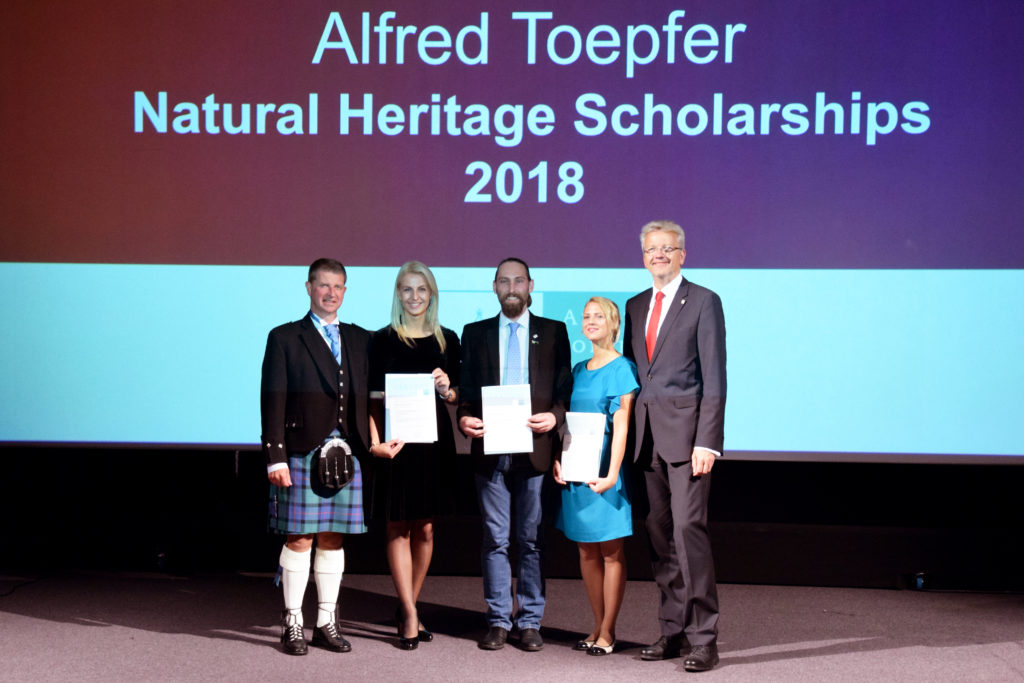
Alfred Toepfer Scholarship Winners 2018 (From left to right) Ignace Schops, Agné Jasinavičiūtė, Lászlo Patkó, Baiba Ralle
and Andreas Holz at EUROPARC Conference, Scotland.
2018 – winners:
Agnė Jasinavičiūtė is currently working as Chief Officer of the Landscape Protection Division at the State Service for Protected Areas under the Ministry of Environment of Lithuania. Her main duties includes the coordination of landscape monitoring in protected areas, assessment of the status of the values, preparation of strategic planning documents and implementation for landscape and biodiversity conservation and management. She is a Lecturer and also Ph.D. student in Vilnius University of Physical Geography field. During her study trips, Agnė will focus on various landscape perception and policy tools for management in different categories of protected areas which are under pressure from various drivers of change such as urbanisation, infrastructure development, intensive recreation, climate change etc. She will also analyse how these large-scale protected areas are managed and monitored. Besides, Agnė is interested in methods of raising awareness and landscape interpretation of the protected areas.
>> Read the article and download the full report.
Baiba Ralle is currently working as a nature education specialist/PR manager at Nature Conservation Agency, Latvia. Her everyday work is mostly connected with Kemeri National Park. Baiba will broaden her knowledge about communication of protected areas (strategic planning of public relations), collect new tools, best practices, outstanding ideas of society involvement and learn new methods of nature education and interpretation. She is interested in new methods of educating park visitors and local groups, connecting them with nature, giving them the feeling that specially protected areas have been made for them, are actually serving them and should thus be regarded as elements of national identity, something own and therefore guarded as a gemstone.
>>Read the article and download the full report.
László Patkó is working for WWF Hungary as the Large Carnivore Programme Leader since 2018. Previously, he was employed by the International Council for Game and Wildlife Conservation (CIC). László has graduated from the Szent István University where he studied nature conservation and wildlife management. He studied non-invasive carnivore monitoring methods during his PhD years at the Institute for Wildlife Conservation, Gödöllő. Having spent his early career in research, hunting and nature conservation led him to WWF Hungary where he manages the Euro Large Carnivore LIFE project. This project aims to bridge the gap among different stakeholder groups, like conservation experts, hunters and livestock keepers for a more efficient co-existence with large carnivores.
2017 – winners:
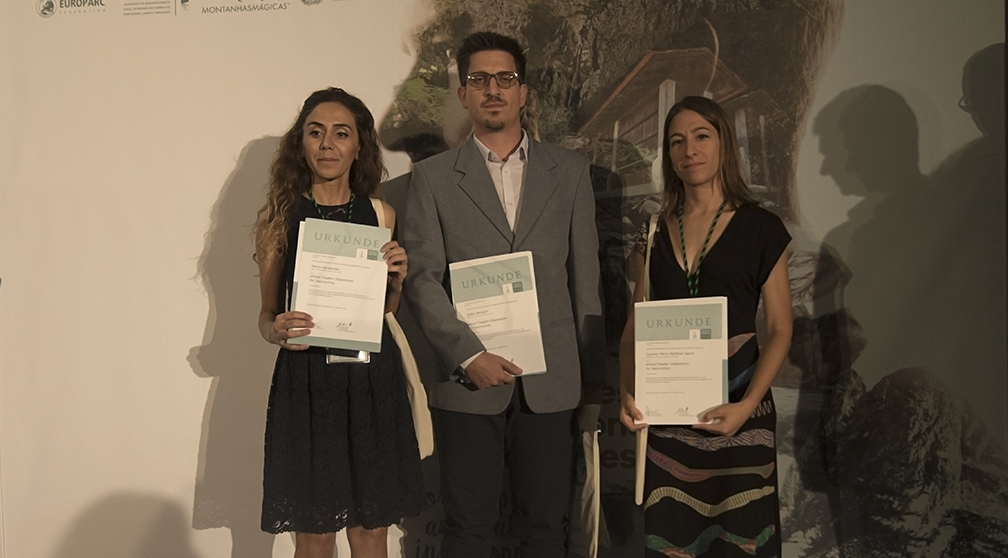
Alfred Toepfer Scholarship winners at EUROPARC Conference 2017, Sao Pedro do Sul, Portugal (winners: from left to right: Zerrin Karaarslan, Csaba Bereczki and Carmen Martínez) © Eduardo Realinho
Carmen Martínez is an Environmental Technician, working for ANSE, a regional ONG aimed Nature Conservation for more than 10 years, and a Lecturer in Methods Area of Experimental Sciences at Faculty of Education at the University of Murcia, Spain. Nowadays, she is engaged in the protection of Mar Menor, a Mediterranean Coastal Lagoon, establishing a management plan and involving inhabitants and workers in its conservation. Ms. Martínez will be visiting Protected Coastal Wetlands from 3 different countries (UK, France and Albania), with distinct management, social involvement strategies and status, in order to learn with their experience how they are planned and managed. By meeting with meeting managers and stakeholder, she expects to establish general guidelines for coastal wetland management, find ways to involve locals and stakeholders, mainly traditional sectors as artisanal fishermen, and starting a network of NGO working in wetland conservation.
>>Watch the film and download the full report.
Csaba Bereczki is currently working as biologist/project coordinator at Hortobágy National Park Directorate, Hungary. Csaba will broaden his knowledge about invasive alien species, the spreading of which is among the biggest nature conservation issues nowadays. He will collect information about species within the Carpathian-basin and also species that are likely to appear in the near future. During his study trips, he will focus on different best-practice methods of eradicating these species, and also how these methods could be adjusted to local conditions. Besides, he is interested in laymen and tourists involvement to eradication of invasive alien species. Csaba selected three Hungarian National Parks (Bükk National Park, Kiskunság National Park and Fertő-Hanság National Park), two Czech National Parks (Sumava National Park and Podyji National Park), one Polish National Park (Bierbza National Park) and one Nature Park from Croatia (Medvednica Nature Park) to visit in 2018. The experience and knowledge that hopefully gathered during his study trips will help Csaba and his Directorate to combat against recent threatening invasive species and to prepare in advance against those that likely to appear because of global climate change.
>>Read the article and download the full report.
Zerrin Karaarslan is a Landscape Architect working for Ministry of Forestry and Water Affairs General Directorate of Nature Conservation and National Parks, Turkey. She is also Ph.D. Candidate in Ankara University Graduate School of Natural and Applied Sciences. In order to enhance her knowledge on the benefits of ecological restoration on protected areas as means of ecosystem health and human health, she will make study visits to the best restoration practices at different ecosystem types. Zerrin will be visiting Doñana National Park and Sierra deGuadarrama National Park in Spain and Bavarian Forest National Park in Germany. As a technical staff working for the ministry, she will offer her gained experience to the restoration of degraded ecosystems in Turkey and enable the conservation of one of the richest biodiversity value of the region.
>>Read the article and download the full report.
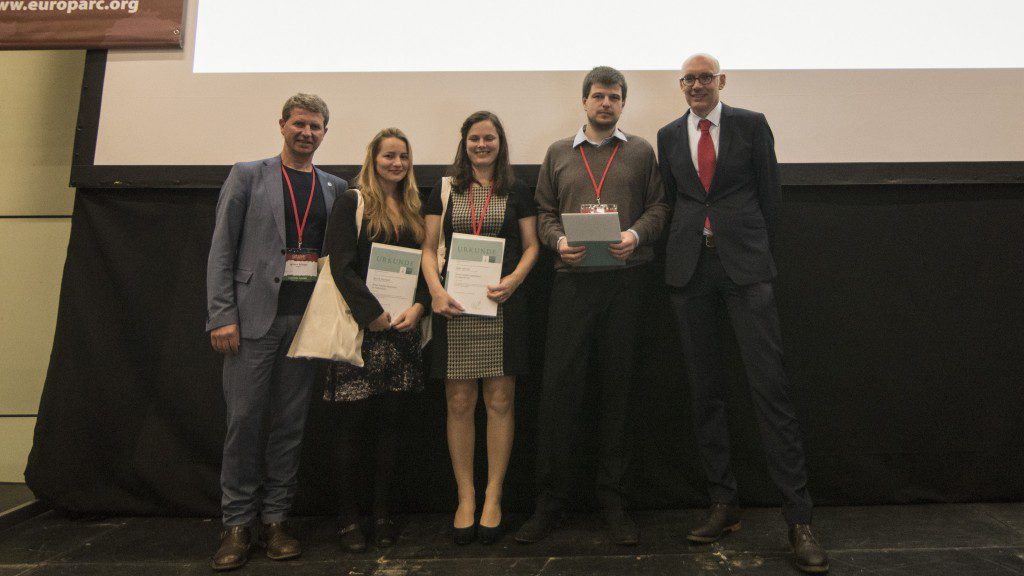
Alfred Toepfer Scholarship winners at EUROPARC Conference 2016, Parc Jura vaudois, Switzerland (winners: from right to left: Bryony Thomson, Baiba Galniece and Tymur Bedernichek) © Joao Romba
2016 – winners:
Baiba Galniece is Senior Expert at the Nature Conservation Agency of Latvia, working directly at the Kurzeme Regional Administration, Latvia. Ms. Galniece will enhance her knowledge regarding the floodplain grassland restoration, monitoring and management, with study tours to protected areas in three different countries. During her study trip, Baiba will not only observe details of grassland and meadow restoration, but she will mainly focus on how these project sites have been managed afterwards by the protected area’s administrations, with and without the local involvement. Baiba selected three protected areas – Biebrza National Park in Poland, Orseg National Park in Hungary and Alam-Pedja Nature Reserve in Estonia – due to the similarities with Latvia’s natural and socio-economic conditions. The experience Baiba will be gathering, will support her in the future planning and management activities in the region of Kurzeme.
>>Read the article and download the full report.
Bryony Thomson is Community Involvement Ranger at the Peak District National Park, England. For Bryony, whose daily work is connecting people (either volunteers, schools or corporate groups) with the Park, believes that People need nature and nature needs people. Fostering this relationship should be a top priority for conservation organisation as a foundation for both happy, healthy people and a robust natural environment for many years to come. Therefore, her project is based on visitors engagement: understanding visitor’s motivations and finding effective methods to engage them. Bryony will be visiting 6 protected areas in 4 countries (Estonia, Finland, Germany and Switzerland) and will make surveys to adult and child visitors to analyse demographics, attitudes and engagement. Looking forward to see the results of her study!
>>Read the article and download the full report.
Tymur Bedernichek is a Researcher at the M.M. Gryshko National Botanical Garden in Kiev, Ukraine. Tymur has a dream: to re-establish re-establish Miloš Deyl Alpine Research Station on Pop Ivan Maramures, in the Carpathian Biosphere Reserve. Miloš Deyl was a famous Czech botanist and ecologist who conducted detailed research on vegetation, soils and climate at Pop Ivan Maramures, back in the 1930s. Deyl established hundreds of experimental plots and gathered unique information about Pop Ivan. Now, 80 years after, Tymur wants to repeat Deyl’s studies on the same plots, in order to have comparative data before and during global warming. The result? Tymur will be able to evaluate the impacts of global climate changes on the most sensitive and fragile ecosystems – subalpine and alpine tundra. For that, Tymur will firstly learn with his peers how climate stations work – there are currently six alpine research stations, in the Alps and Carpathians. He will be visiting climate stations located in Tatra National Park (Poland), Karkonosze National Park (Poland) and Karkonosze National Park (Poland).
>>Read the article and download the full report.
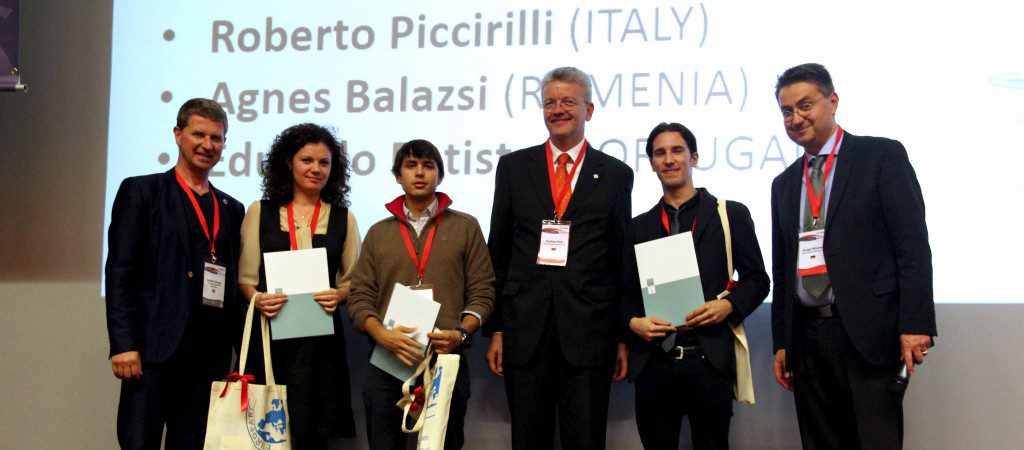
ATS Winners 2015 at EUROPARC Conference 2015 © Jakub Kaspar (winners, from left to right: Agnes Balazsi, Eduardo Batista and Roberto Piccirilli)
2015 – winners: Roberto Piccirilli, Agnes Balazsi, Eduardo Batista
Agnes Balazsi is a Romanian student graduated with a Master in “The protection of natural and anthropic systems” at the University of Cluj-Napoca. The aim of her project is to visit different protected areas within some of the post-communist countries of Europe in order to explore and compare their implementation of the EU Biodiversity Strategy, with emphasis on grassland habitats. Agnes’ trip will lead her to five National parks situated in Hungary, Slovakia and Czech Republic. Read the article and download the full report.
>>Read the article and download the full report.
Roberto Piccirilli has completed a Master in management and development of parks and natural areas at the University of Teramo (Italy). His project aims at increasing knowledge of management and development of Adriatic marine protected areas through the exchange of information and best practices between two Marine Areas in the Adriatic, their human-environment and the efficient use of resources. The first area is Torre del Cerrano Marine Protect Area, in Italy, where Roberto works. The second is Brijuni National Park, a group of small islands in the Croatian part of the northern Adriatic Sea west coast of the Istrian peninsula.
>>Read the article and download the full report.
Eduardo Batista has a Bachelor degree in General Biology with Minor in Management and Bussines at the university of Aveiro (Portugal). He has been studying macro fungi communities in Portugal and strives now to identify and map the fungi community in different places to improve the knowledge of ecosystems and their preservation. To achieve these objectives, Eduardo has chosen to visit the Plitvice Lakes National Park situated in the inland mountain region of Croatia.
>> Read the article and download the full report
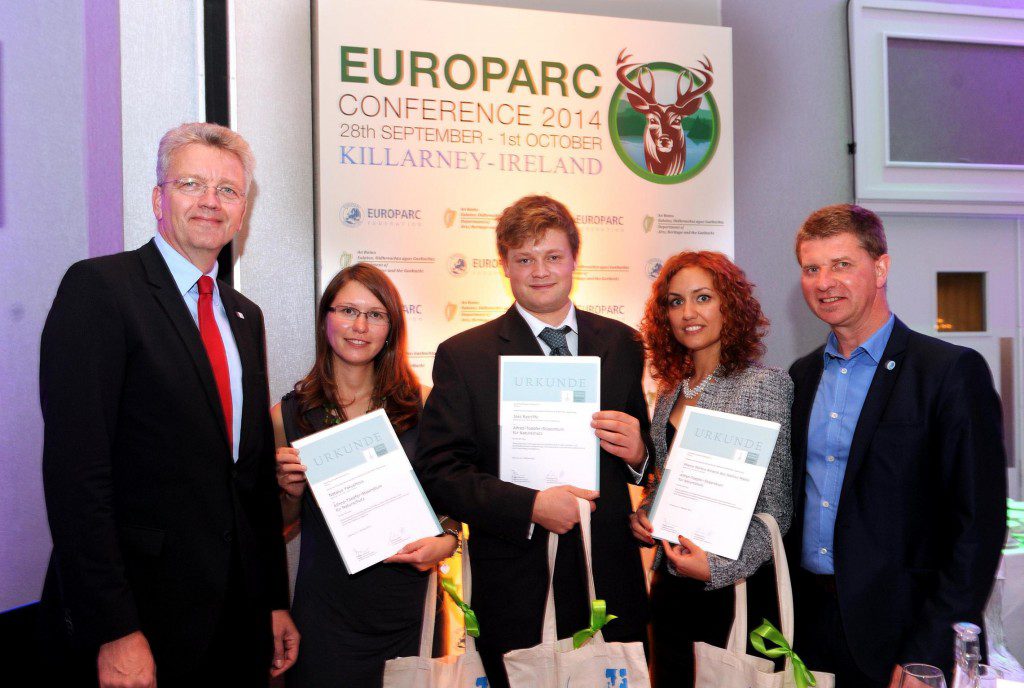
Alfred Toepfer Scholarship winners at EUROPARC Conference 2014, Killarney Ireland © Don MacMonagle (winners, from left to right: Natalya Yakusheva, Joss Ratcliffe, and Milene Matos)
2014 – winners: Joss Ratcliffe, Milene Matos, Natalya Yakusheva
Joss Ratcliffe is a young researcher based at the Environmental Research Institute in Thurso, Scotland. He is very passionate about science and conservation and has a particular interest in blanket bog habitat. His project at the Environmental Research Institute is concerned with the rate of carbon accumulation and the effects of commercial forest planting on carbon stocks in Scotland´s largest terrestrial Natura2000 sites: the Caithness and Sutherland Peatlands. With the long residence time of bog carbon, measured in millennia rather than centuries, healthy un-drained peatlands truly are one of the most effective ways protected sites can reduce the impact of climate change. Joss will visit a range of wetland sites managed by Metsähallitus Natural Heritage including Koli National Park and sites in Lapland and Ostrobothnia that most resemble open treeless peatlands in Scotland. He plans to visit sites representative of different mire types and restoration techniques as well as observe less intensive forestry practises such as the use of natural regeneration and what affect this has on ecosystem function and biodiversity.
>> Download the full report
Milene Matos is from Portugal and has been working on biodiversity conservation and invasive plant species control, but she lacks further experience, namely on how to correctly communicate these aspects to the general public, in order to engage it and raise public awareness. She wishes to learn from Parque Regional del Sureste (Spain) team´s experience and replicate the best practices in Portugal. Combining the gathered knowledge and shared experiences with her current activities, she will be able to actively contribute to the conservation of biodiversity of central Portugal, which is one of the richest in Europe. She intends to use the experience to help building a conservation framework tackling invasive species, specifically creating working documents to share with technical staff of the Protected Areas where she collaborates, and organizing training-in-action events.
>> Download the full report
Natalya Yakusheva currently holds a position of a PhD candidate at Södertörn University, Sweden. Her research is focused on the governance processes of nature conservation policy in the Carpathian countries, namely Poland and Slovakia. In particular she scrutinizes how various policy frameworks are translated and implemented on the ground, what are the implications, potential issues and benefits of Protected Areas for local communities. She would like to continue working on the projects that link research, policy and practice in the field of nature conservation, especially in the mountainous areas. Therefore, she aims to explore links between political objectives (EU biodiversity strategy) and day-to-day implementation, i.e. management activities of transboundary Protected Areas in the Alps (Prealpi Giulie Natural Park, Italy and Triglav National Park, Slovenia). For this, she will examine the management plans, their implementation, including park’s human and resource capacities, day-to-day activities, key source of financing, as well as encountered obstacles and issues, monitoring and reporting systems and transboundary cooperation. In the final project report the collected materials will be analyzed against existing biodiversity policy framework in order to identify links and gaps.
>> Read the article or download the full report
2013 – winners: Maris Noor, Sabine Nouvet and Catherine Wynn
The 2013 Alfred Toepfer Scholarships winners are three ambitious conservationists who will research in different fields of Nature protection.
Maris Noor from Estonia would like to learn from other countries what is the best way to communicate the necessities of Protected Areas to landowners and other stakeholders connected to the Protected Areas. For gaining new experiences she will travel to national parks in Austria and Georgia.
Sabine Nouvet from UK plans to study the management of natural resources in national parks of the French Alps. She wants to focus on successful examples of agri-environment schemes which have been developed in cooperation with farmers and their shepherds.
Catherine Wynn, also from UK focuses on the effectiveness of management of Protected Areas and methods to measure success. She will get in contact with agencies and stakeholders which have participated in the management plan of Šar Mountains National Park.
The award ceremony took place during the EUROPARC conference 2013 in Debrecen (HU).
2012 – winners: David Bogoy, Tilen Genov, Willem Laermans
In 2012 Alfred Toepfer Scholarship winners were selected from more than 43 applications for the scholarship. The EUROPARC council had a difficult task to chose three proposals: this year´s winners are from Hungary (Mr. Bogoy), Slovenia (Mr. Genov), and Belgium (Mr. Laermans). Their research projects deal with habitat restoration, Marine Protected Areas management, and restoring wilderness, respectively. The award ceremony took place during the EUROPARC conference 2012 in Genk (BE) .
2011 – winners: Tünde Ludnai, Ross Watson and Robbert Casier
In 2011 the scholarships were awarded to 3 candidates; Tünde Ludnai from Hungary who worked along with the Baltic Environmental Forum in Lithuania to support the development of the ranger concept in Lithuania. Ross Watson from Scotland in his project aimed to develop European partnerships and information sharing in the field of grazing management across three different woodland habitats. Please find his report on the right side menu.Robbert Casier from Belgium in his project tried to increase communication and exchange of knowledge between MPAs and World Heritage marine sites in the Mediterranean Sea.The report and a list of accompanying films of 2011 Alfred Toepfer scholar Robert Casier on Marine Protected Areas in the Mediterranean Sea is available.
2010 – winners: Ekatarine Kakabadze, Alina Ionita and Matthew McGettiga
In 2010 the number of applicants for the scholarships rose dramatically. The EUROPARC Council chose between 17 brilliant applications. The three winners who were selected in June 2010 come from all over Europe: Ekatarine Kakabadze comes from Georgia, Alina Ionita from Romania, and Matthew McGettigan from the United Kingdom. They are undertaking studies in the fields of transboundary cooperation, rural development and climate change. These trips took place in 2011 to various EUROPARC member Protected Areas.
2009- winners: Saira Sheldrake, Naomi Barker and Urszula Biereznoj
In 2009 the scholarships were awarded to Saira Sheldrake (UK), who developed a tool to predict disturbance distances of the recreational sport of Kite-surfing on wintering and wading birds in Protected Areas with coastlines. Naomi Barker (UK) visited the national parks in Germany and report back to us about the management of areas without human impact, so called “non-interventional-management-zones” and conflict management between species protection and landowners. Urszula Biereznoj (PL) visited Protected Areas and environmental institutions in United Kingdom, France, Belgium and the Netherlands, to exchange knowledge, experiences and best practices of biodiversity conservation and Natura2000 management.
2008 – winners: Rachel Danemann, David Rodriguez and Razvan Deju
In 2008 the scholarships were awarded to Rachel Danemann (UK), David Rodriguez (ES) and Razvan Deju (RO). Rachel looked at fire management in Protected Areas as well as examine marine Protected Areas in Greece, while David visited the less well known country of Moldova and reported back to us on their Protected Area management system. Razvan Deju (RO) studied Bison management in Poland with the aim of reintroducing them in Romania.
2007 – winners: Kveta Cernohlávková, Andrzej Ginalski and Stephan Krasser
In 2007 the scholarships were awarded to:
- Kveta Cernohlávková (CZ): Junior Ranger Projects in Europe
- Andrzej Ginalski (PL): Management in national parks and nature conservation: Report of study visits in the British National Parks
- Stephan Krasser (A): Photo project “59”
For more information or questions, please contact communications@europarc.org.
